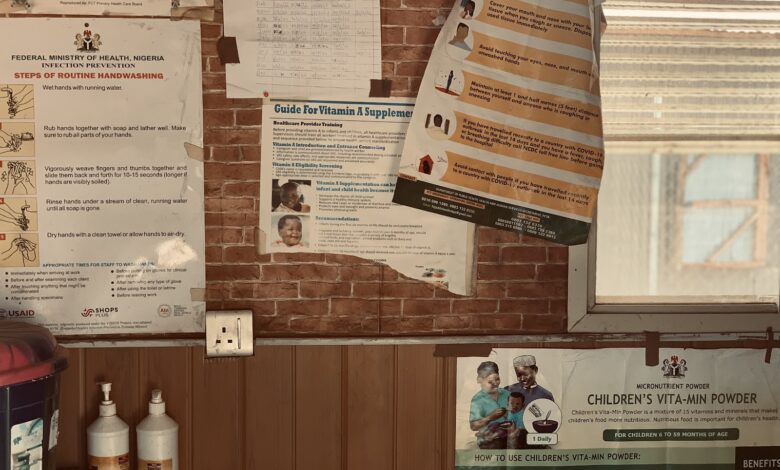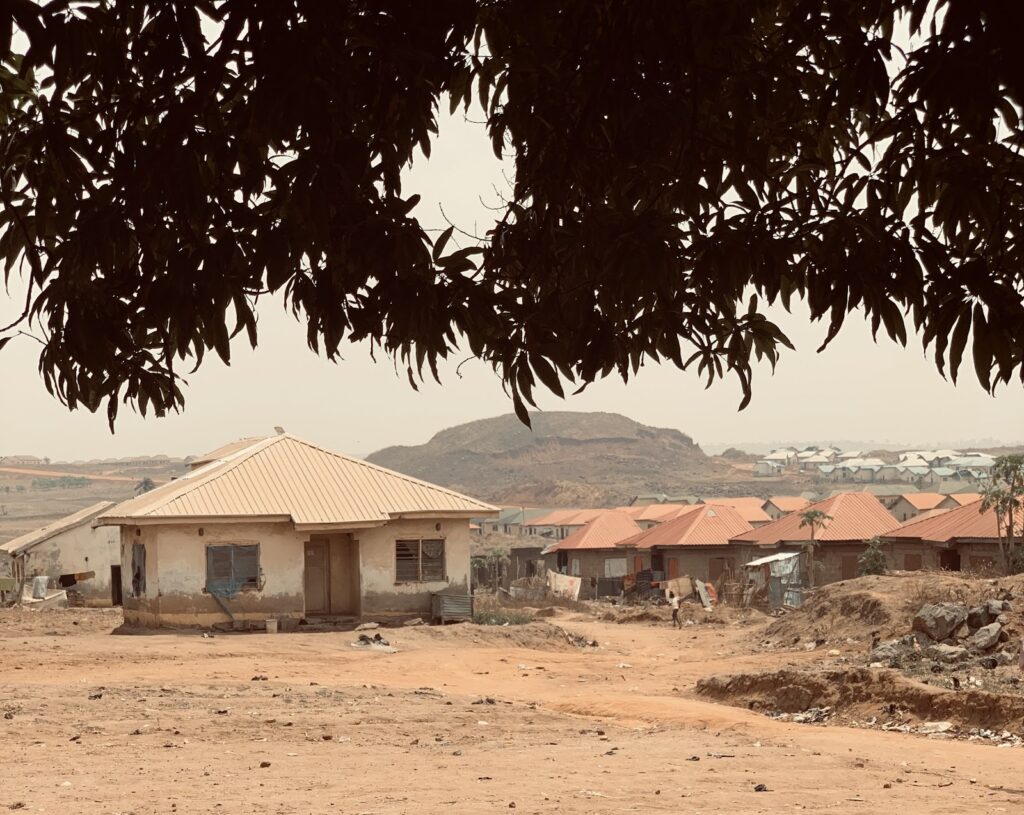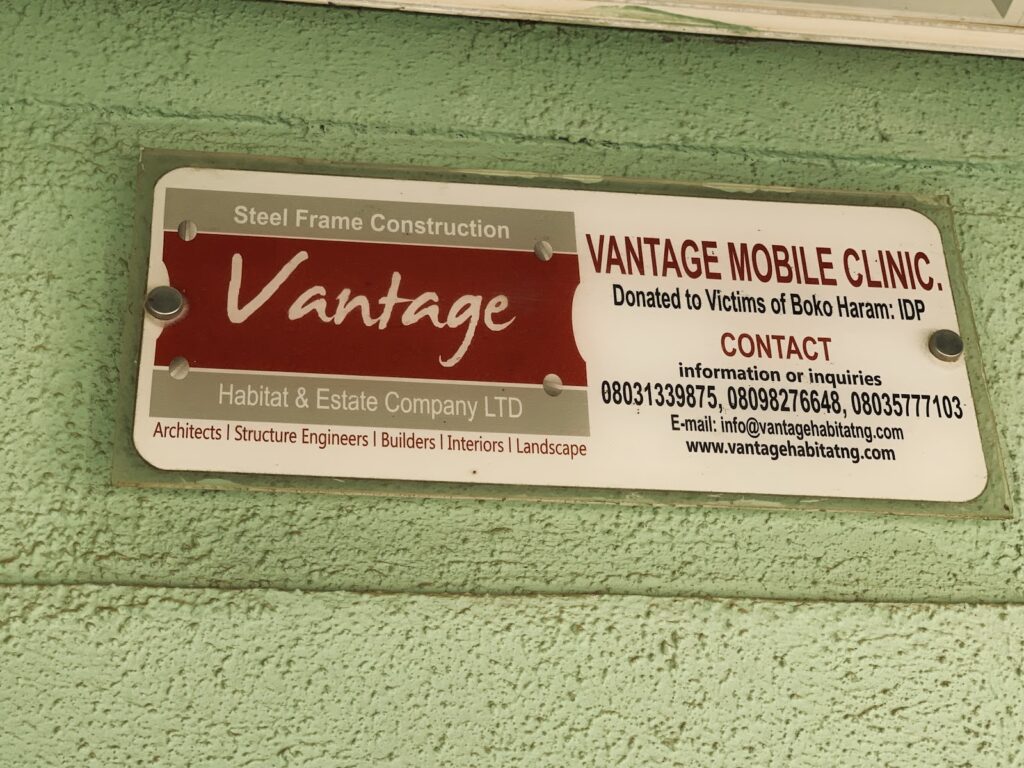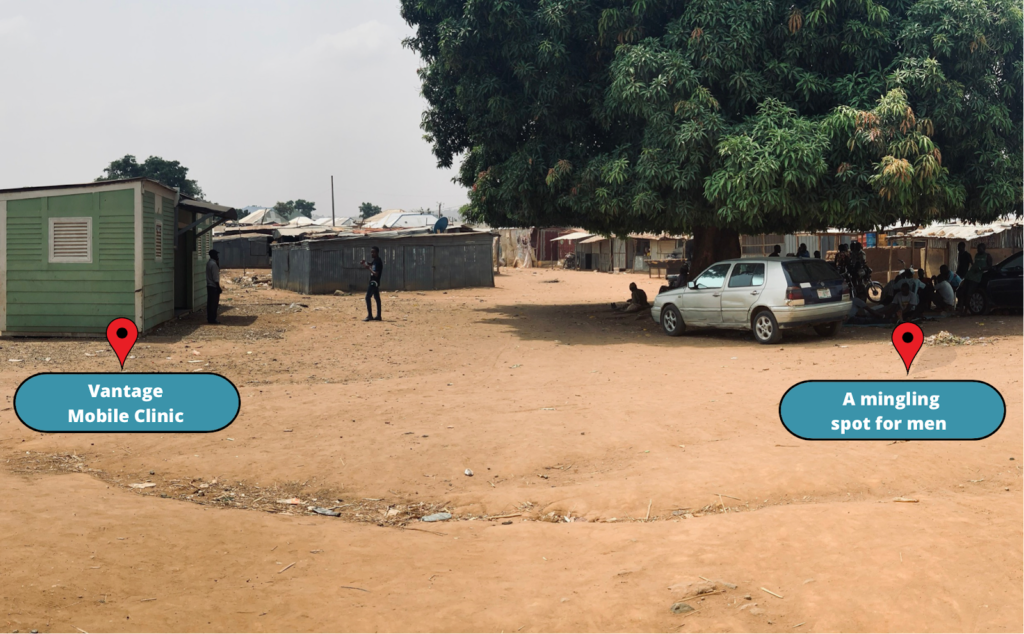Abuja IDPs Struggle With Maternal Healthcare Due To Clinic’s ‘Lack of Privacy’
In a displaced persons settlement known as Wassa IDP camp, situated in Nigeria’s capital, Abuja, north-central region, a clinic was set up to promote healthy living. However, expecting mothers would rather depend on a traditional birth attendant.

Mariam Jacob is expecting her fifth child any moment from now. She is beaming as she looks down at her protruding belly, hoping that the baby will come out healthy and without complications during delivery.
The expectant mother is one of the thousands of people who fled from Gwoza Local Government Area (LGA) of Borno State, Northeast Nigeria, during the peak of Boko Haram insurgency in 2014. Mariam and her family had left their home in Chineni village and scaled through the Cameroon borders. They found their way back to Nigeria a year after through Taraba State — also in the northeastern region of the country — before finally arriving at Wassa IDP camp in the Federal Capital Territory (FCT), Abuja, north-central Nigeria.
When they reached the camp, they were relieved to find that it was a settlement clearly plotted with completed houses with roofs for cover. It was also far away from the middle of conflict. But soon enough they would realise that there were no essential amenities to cater to their needs. One of these was a hospital.
However, in 2016, a mobile clinic, Vantage Mobile Clinic, was commissioned by Yakubu Dogara, then Speaker House of representatives, with the aim of providing quick and affordable healthcare in the camp. Still, Mariam spends N300 on transportation alone to go for ante-natal care weekly at a primary health centre in Chorin-Bisa, a neighbourhood about four kilometres away. She is also planning to go there to deliver her baby despite the distance and cost of delivery.
She says that the mobile clinic has several issues but the main reason she will rather take her business elsewhere is its lack of privacy.

Before the Mobile Clinic was set up, Ladi Bitrus, another woman in the camp, told HumAngle that when pregnant women were in labour and about to deliver, it was a man, displaced with them, that came to their homes to assist. “He used to work at a general hospital before we got displaced, so when we came here he turned his house into a clinic, and we went to him for medical diagnosis and drug prescriptions. For women who were about to give birth, he usually came to the house to deliver the child.”
The man charged N10,000 for delivering girls, and N15,000 for delivering boys. When HumAngle asked if the difference in price was because the boys needed circumcision, Ladi replied “no, we pay for that separately,” adding that families paid him like that only because it was cheaper in comparison to going to the primary health centre in Chorin-Bisa.
The concept of mobile clinics
Generally, mobile clinics are set up to provide immediate access to healthcare, especially for displaced or isolated individuals. They fill in the gap in settings where there are damaged or inadequate healthcare infrastructure.
These clinics usually consist of not only community health workers but registered nurses, midwives, and health record assistants equipped with medical kits. This has not been the case for Vantage Mobile Clinic located within Wassa IDP camp.
Since its commissioning, only one health worker was employed by the Abuja Municipal Area Council (AMAC), assisted by a volunteer who is often unavailable.
Medications, which are lacking, are only donated by Non-governmental Organisations (NGOs) and sold to them.

Hauwa, on the other hand, is strung between grief from loss, and the soreness of childbirth. She maintains a distant gaze with eyes full of exhaustion. “Life was alright before,” she says, too heartbroken to give details into her former life.
Her emotional state is not completely due to her running away from home for safety, she lost a child the morning before she gave birth to another.
Hauwa delivered her recent child at Vantage Mobile Clinic. At the time of filing this report, the baby was just two days old. It was also in the same clinic her other child’s health deteriorated due to lack of adequate drugs.
Ladi, who decided to speak on Hauwa’s behalf, said she only decided to give birth in the clinic because she could not afford to go elsewhere and was afraid that using a birth attendant would cost her another child.
Hauwa’s late child had battled with a long illness. “He suffered greatly, since December,” Ladi said. “He was admitted at the mobile clinic but there are no drugs there. The health worker recommended that we transfer him to a hospital.”
It was at the hospital he died.
Determinant for choosing maternal health care
According to WHO, one of the ways to improve the quality of care in health facilities, especially for women, is having an appropriate physical environment. Spaces need to be designed and maintained to allow privacy as well as stocking of medicine supplies and equipment.
Mariam’s claim of the mobile clinic’s lack of privacy was corroborated by the health worker who did not want his name mentioned. It is one of the reasons expecting mothers choose birth attendants over the clinic.
“In this camp, the women do not like to come here because this is an open space. Some of them even when they come for ante-natal, they end up going back home or going to another hospital to deliver because of privacy.”
The mobile clinic is not literally open the way he puts it. It has walls that cover an admission ward, a doctor’s consulting room, and a room for minor surgeries that doubles as a delivery room for women. However, it is directly opposite a mango tree where men socialize day and night.

Dr Halima Sa’idu, a public health expert, noted that from the public health perspective, the core factors of setting up a clinic of whatever sort are vast but there are three basic factors to consider. “There is a thing we call ‘the three delays’ which are the main cause of maternal mortality; delay in taking a decision, delay in transportation, and delay in having the appropriate services at the facility.”
She explains that giving birth for a lot of women is a private affair, and women who do not feel safe and secure in an environment will delay going to the place. “Even as a socially exposed woman, I would not want a group of men hearing me moan or scream because I am about to give birth, talk more of people who come from secluded communities.”
Dr Halima added that privacy is a very important aspect in determining choice of birth place, followed by the expertise of healthcare workers in a facility.
“There are different tiers of facilities that render various levels of healthcare services. These health facilities ascend from community health posts to tertiary health facilities. Some can only give ante-natal service but do not deliver babies.
A mobile clinic is not restricted, with adequate medical professionals; that is doctors, nurses, midwives and anesthesiologists in case of rendering a cesarean section (CS), they are covered and babies can be delivered before the woman is referred to the next level of care.”
Women who are not as advantaged as Mariam Jacob are left to decide between Vantage Mobile Clinic or their traditional birth attendant when deciding how their babies will be born.
Support Our Journalism
There are millions of ordinary people affected by conflict in Africa whose stories are missing in the mainstream media. HumAngle is determined to tell those challenging and under-reported stories, hoping that the people impacted by these conflicts will find the safety and security they deserve.
To ensure that we continue to provide public service coverage, we have a small favour to ask you. We want you to be part of our journalistic endeavour by contributing a token to us.
Your donation will further promote a robust, free, and independent media.
Donate HereStay Closer To The Stories That Matter




